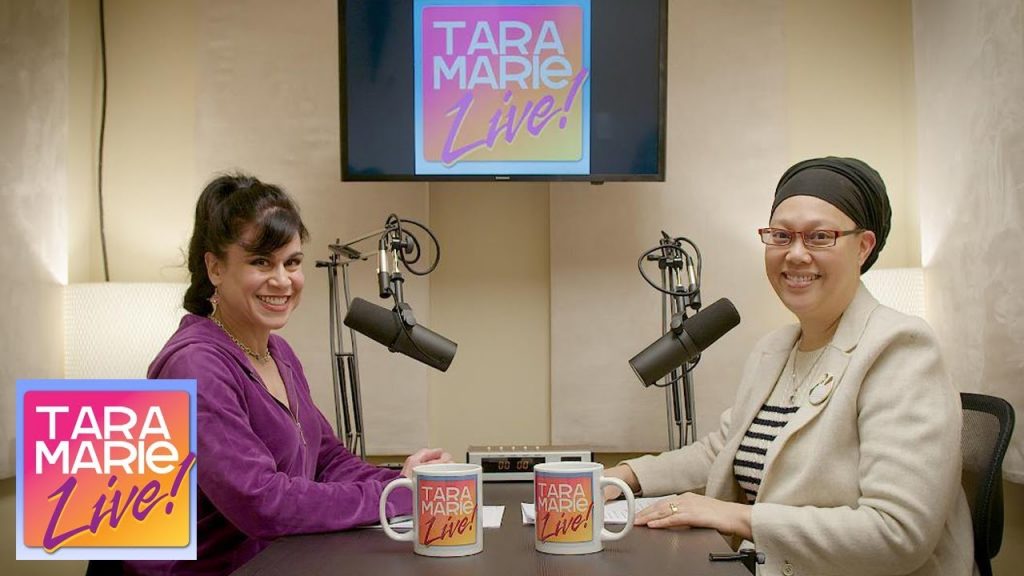The Official Blog of Tara Marie Segundo, M.A.
 On the latest episode of my podcast, TARA MARIE LIVE, we broach a topic that reflects the concerns of so many of my listeners—a slow metabolism. People are frustrated because they believe that they are doing everything right, but the results are just wrong.
On the latest episode of my podcast, TARA MARIE LIVE, we broach a topic that reflects the concerns of so many of my listeners—a slow metabolism. People are frustrated because they believe that they are doing everything right, but the results are just wrong.
For this episode, I tapped one of my listener favorites, Dr. Patricia Pimentel Selassie.
People love Dr. Selassie because she gives practical advice that can be implemented easily. As a Naturopathic Physician, she treats patients with a wide variety of health concerns, and her philosophy is to treat the whole patient in such a way that allows the body to do what it does best—heal itself.
When I was growing up, I was taught information about fat loss that I now know to be false. In fact, much of what I was taught inadvertently slows metabolic rate, making fat loss even harder.
Many people believe that, with age, metabolism naturally slows and we must accept this as an unfortunate fact of life. This is untrue. I find (and science confirms) that it has more to do with what you do and what you stop doing as you age that creates a metabolic slow-down.
So, what is metabolism? Metabolism is any process occurring within a living cell or organism necessary for life. The majority of metabolic function has to do with converting food into energy. This process is called Thermogenesis.
Basal Metabolic Rate (BMR) is your metabolic rate when you are inactive, creating energy to heal and breathe. This reflects your caloric burn in a 24 hour cycle to maintain basic physiologic function.
You may have also heard the term Resting Energy Expenditure (REE). BMR and REE measure roughly the same thing only BMR is measured using more restrictive conditions while REE is measured under less restrictive conditions. The main point to understand is that the majority of calories you burn in a 24 hour cycle are burned at rest.
There are many things that you may be doing that are slowing down your metabolic rate, but there are many more things that you can do to optimize it.
Season 2 of my podcast, TARA MARIE LIVE, kicked off last week with a fantastic Facebook LIVE event! As we pre-recorded the episode, we simulcast it on Facebook LIVE. We will be doing this for most episodes, and I will notify you each time so you can be sure to take part in these fun and interactive events. For email notification of these and other events, sign up for my Mailing List.
My Season 2 Premier featured a guest who is a listener favorite, Dr. Patricia Pimentel Selassie. She is a Naturopathic Physician who is always on the cutting edge of natural medicine.
We talked about a topic that, in most circles, is considered new and perhaps even controversial: CBD oil, or cannabidiol oil.
The controversy and confusion stems from the fact that people think that anything that comes from the cannabis plant must be pot, weed, marijuana, Mary Jane, or whatever name you use.
Marijuana comes from the cannabis family, and it is grown to have high levels of THC, which is a chemical compound that has both medicinal and psychoactive properties and will get someone high. This is the source of both recreational and medicinal marijuana.
Conversely, CBD oil is sourced from hemp, which also comes from the cannabis family, but CBD is not psychoactive. CBD has medicinal properties. Farmers are now growing strains of cannabis plants with very high CBD and virtually no THC.
To summarize, THC has psychoactive properties, is pain-relieving, can stimulate the appetite, and can stop nausea. Its side effects are anxiety and paranoia.
CBD is not psychoactive. CBD, or cannabidiol, is a plant medicine like echinacea, goldenseal, dandelion, or olive leaf. It is pain-relieving, anticonvulsant, antipsychotic, antioxidant, anti-inflammatory, neuroprotective, and has immunomodulatory effects. It has no side effects.
The most fascinating thing that I learned on this show is that we humans have an endocannabinoid system. This system contains neurotransmitters that we make from fat that bind to cannabinoid receptors, just as we have estrogens that bind to estrogen receptors or serotonin that binds to serotonin receptors. This system plays a role in the health of your brain, and reproductive, endocrine, and immune systems.


